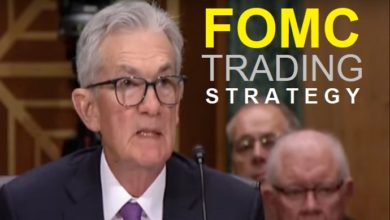
Maybe you’ll ask, how long are blue chips blue? I heard most stock investors are buying blue chip stocks, but the question arise is how long does these blue chips blue? I want to shared what I read about the book “Retire Young, Retire Rich” by Robert t. Kiyosaki – the famous author behind the book “Rich Dad, Poor Dad” and “Cash Flow Quadrant”.
Interesting Post: Benefits of Blue Chip Companies Stocks
Actually I bought this book yesterday, and when I flip from pages to pages, I found an interesting topic and point of view from Robert T. Kiyosaki. I think this is worth sharing here at InvestmentTotal.com. Awhile ago I wrote some topics related to Stock Market Today entitled, how does the stock market works, I know you already read this topic, if not, please have time to read it.
Many of us (investors) don’t want to lose money and want to achieve our target financial goal during retirement, that’s why we gather useful information about investing especially investing in the stock market. I read some tips from investment forums, from financial advisors even from the books that it is wise to invest only with the blue chip companies because these companies are secured and stable. As I’ve said awhile ago in my previous topics, although blue chips are secured and stable, but, the stock market itself isn’t secured due to “R.I.S.K.” involved.
Robert T. Kiyosaki is a financial literacy activist from United States of America, became super rich in the real estate world. He earned a great reputation when it comes to money, investing and entrepreneurship.
According to Robert T. Kiyosaki, the strategy about investing for a long term and buy only blue chips stocks… “To me, that is an absolete idea because it worked in the Industrial Age, but it doesn’t work in the Information Age. The reason that old strategy doesn’t work anymore is because blue-chip stocks are not blue chips anymore.”
He wrote to his book that a blue chip stocks used to last 65 years during industrial age, but in nowadays (information age), blue chip companies will only last for 10 years. How about that? He reasoned out the fast moving technology, due to the past facing technology, he says a company may rise and fall in just a few years.
According to him, the past facing technology requires all of us especially investors to “be more vigilant and to focus on keeping our money moving, rather than just leaving it parked waiting for the market to rise and rise forever.”
He added “The buy, hold, and pray strategy is okay for the average investor, but it is not a great strategy for anyone who wants to retire young and retire rich.”
If you have the book “retire young, retire rich”, you will noticed that the continual part of the topic is about “The Leverage of Real Estate”, Robert T. Kiyosaki made a constructive criticism about the statement “Invest for the long term, dollar-cost average, diversify your portfolio”, he said that this statement is a “great mantra for people who don’t know much about investing”.
Reference: Rich Dad’s: Retire Young Retire Rich | How to Get Rich and Stay Rich by Robert T. Kiyosaki, Plata Publishing 2012, page 325-327
Stocks related to technology are Facebook, Apple Inc., or Google if you are stock investor from USA and if you are in the Philippines Philippine Long Distance Telephone (TEL), Globe and banks will easily adapt the past facing technology.
Blue Chip Stocks in the Philippines
If you are looking for best stocks to buy and hold for long term, Mr. Marvin Germo, one of the stock experts in the Philippines has a recommended stocks to buy for long term and these stocks are Ayala Corporation (AC), Jollibee Food Corporation (JFC), Banco de Oro (BDO), SM Prime Holdings (SMPH) and Metro Pacific Inc (MPI). He once called these stocks as the mythical five, in playing basketball, you must choose your mythical five to have a strong assurance in winning the game.
Note: Recommended stocks from Mr. Marvin Germo will change from time to time, kindly ask him personally or visit his website to find further information.
Source: www.MarvinGermo.com
Robert T. Kiyosaki wants us to answer the question “how long will a blue-chip stock be blue?”. Will you keep buying blue chip stocks or diversify your investments by investing in other types such as real estate and business empires.

How Long Are Blue Chips Stock Blue?
“If the underlying companies: 1) are able to grow organically; 2) have excellent management teams with a global view of the market; 3) have significant market share; 4) are able to survive market downturns; and 5) pay dividends, then betting on such “blue chip” stocks seems a good investment decision.” – Mr. Pete de Leon, Philippines
“I have been buying blue chips, it has steady cash dividend and sometimes stock dividends.” – Mr. Andrew Go, Philippines
Disclaimer: I am not affiliated with company, book or people mentioned in this blog. The logos, slogan and registered business names mentioned are owned by their respective companies. Proper credit will be given. Ask only the financial experts regarding investing and retirement planning.
Stay tuned to InvestmentTotal.com for more investing related updates. If you really want to invest in the stock market, kindly read the guide on how to start investing in stocks. Did you find this article useful? Share it and answer the question about “how long will a blue-chip stock be blue?” using the comment box. Thank you.









DISCLAIMER: The information provided on InvestmentTotal.com is for general informational purposes only. The content on this website is not intended to be, and should not be construed as, professional financial advice.